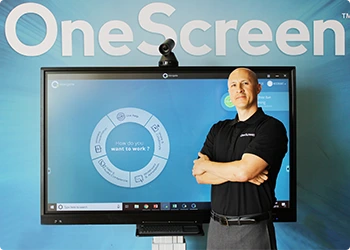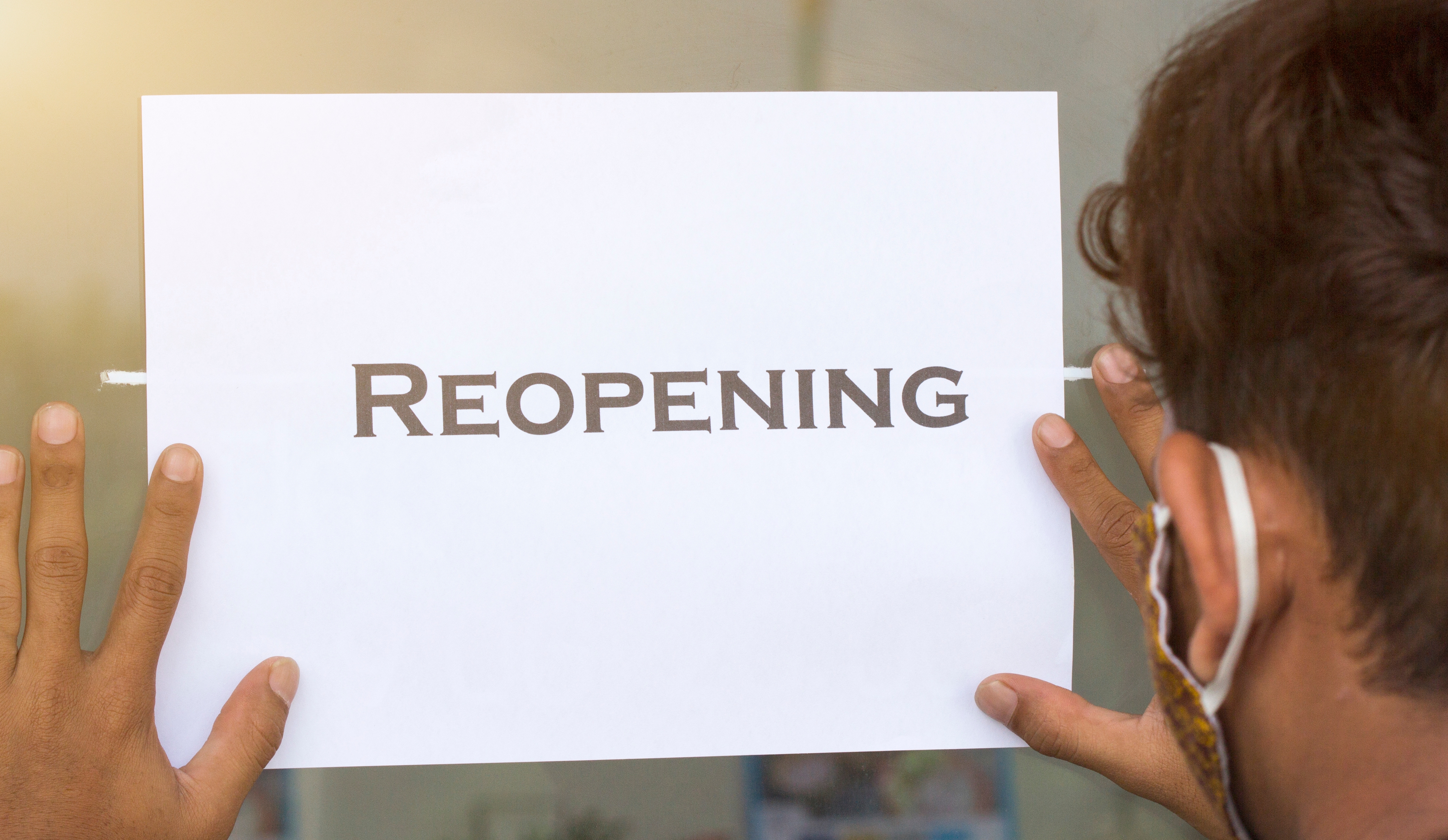
The Future of Remote Work
COVID-19 has upended all of our assumptions about how life is supposed to go. While society has endured countless disasters, the double-tragedy of lives lost and economic cratering has no precedent in modern history. At least, not to this extent. Organizations of all types have made it clear that reopening isn’t an option until they can reopen safely.
Thermal Scanners, the End of Handshakes, and More: Expert Insight Looking Ahead to the "New Normal"
At the start of the pandemic, people often talked about when things would return to normal, but now there’s no question that won’t happen. A different normal will have to emerge. Both advances in technology and collaboration on a global scale will be required to protect public health and get the economy moving again. Safeguards like thermal scanners and mask-checks have made public spaces safer, but what do people really need before they feel confident to return?
See a demo of how GoSafe can protect entryways with AI-enhanced thermal scanners and mask verification.
Prediction 1: Remote Work Will Replace Real Estate as a Success Symbol
Governments in the US and Europe are on very different trajectories in dealing with the outbreak and plans for reopening, but reticence to return is shared by people everywhere.
Steve Phillip, Head of Mission at Champion Health in the UK, said “I feel a large majority of the workforce are returning to work with a large degree of uncertainty and anxiety. With some companies reducing their headcount by 40% and more, those who are offered a continued position fear they may be next to be let go. Fears about their safety and possibly catching the virus when commuting, as well as being around work colleagues who may have the virus, is also adding to stress levels.
In the years ahead, even the symbols of success will have to evolve. “For businesses, particularly corporates,” Philip said, “a symbol of success might be how effective remote and flexible working is - perhaps a symbol of success would no longer be a 32-floor office block but a more effective online presence.”
Prediction 2: The Need to Gather Safely Will Overcome Caution
Gayle Parker, PhD candidate at The Chicago School of Professional Psychology, suggested that the consumers may not be ready to come back to public spaces, even if businesses do their best to make it safe. “People shopping in person need to know from the retailer what steps they are taking to ensure safety and [businesses] need to communicate this repeatedly,” Parker said.
Thermal scans at entryways, controls for limiting the number of shoppers inside, and posted protocols for disinfecting surfaces are a start. The bigger challenge is getting the message out to consumers through marketing and community involvement.
Parker suggested that eventually there will come a point where the drive for public gatherings is likely to overpower caution. “Humans crave socialization,” she concluded.
Prediction 3: Handshakes and "Networking Hugs" Are Gone for Good
Kathleen Quinn, Membership Director for the Chamber of Commerce on Chicago’s Northshore, expects that economic activity won’t begin to ramp up to pre-pandemic levels until a vaccine arrives, perhaps in the fall of 2021.
Even with a vaccine in place, however, some aspects of daily life will never be the same. Quinn commented, “Handshakes are dead. All that is over. When you have been networking for a while you get used to the networking hug. That’s dead, too. We are never going to go back to that.” She suggested that the replacement of these with an elbow bump seems too awkward to take their place.
In addition, the personal space bubble is likely to remain expanded. One positive side effect could be a sharp reduction in harassment incidents as violations of personal space become more rare and clearly intentional.
Objects that normally change hands, like money, pens and business cards, have to be re-imagined for a touchless world. One result is that disposable pens are gaining popularity, as well as their opposite: old-world expensive pens that stay with an individual throughout the business day.
Prediction 4: Virtual Classes and Meetings Must Become More Satisfying
Henry Mason, CEO of the global Trendwatching network and author of “Trend-driven Innovation,” pointed out that virtual experiences have a ways to go to be on par with physical ones. The videoconferencing industry must close the gap.
“The challenge is that in the vast majority of cases, these outcomes are deeply unsatisfactory, for both customers [users of video] due to limited / impaired experience and businesses [providers of video] due to unsustainable profit margins, when compared with the 'normal' i.e. real world interactions.”
This is more urgent now as hygiene stations and contactless everything have risen to two of the biggest trends he has noticed around the world. Mason pointed out, “Part of removing the inter-personal contact is questioning whether the customer needs to come to your physical space at all…. There has been a huge surge in e-commerce, as the obvious transfer from physical commerce. And virtual events replacing physical ones.”
That transition has hit small mom-and-pop shops hardest, but even large retailers have struggled to meet public expectations. While making sure their virtual meetings are richer experiences, organizations must strive to make physical meetings safer for everyone involved. One of the biggest bottlenecks is controlling entry-ways to reduce exposure to contagion in a confined space. The same is true for schools, government offices and anywhere people gather.
Predication 5: Safety Will Become Top Priority in Post-Pandemic Return to Work
Schools and businesses are starting from scratch to creatively reimagine alternative ways to reach their goals and provide a better virtual experience. A hybrid of in-person and virtual classrooms are changing goals and benchmarks for education. Similarly, restaurants and groceries are expanding their delivery services to bridge the gap.
This is just the beginning of a wave of inspired innovations. Mason predicted, “The truth is, that if the crisis continues, the only winners will be those who radically transform their existing businesses, or new, 'covid-native' startups that are designed around these constraints.”
Radical changes don’t have to come all at once, though. A series of steps in the right direction can keep schools and businesses operational as they transition to the new normal.
First and foremost will be assurances to the public that they don’t have to sacrifice safety for a sense of community. That really comes down to four tasks: secure entryways, reduce indoor crowd sizes, keep surfaces disinfected and expand online services.
To learn more about what schools and businesses have already done to prepare for a socially distanced world in 2021, visit our OneScreen News page.
Special thanks to our panel for their insights:
Steve Phillip, Head of Mission at Champion Health UK
Gayle Parker, PhD (ABD) at The Chicago School of Professional Psychology
Kathleen Quinn, Membership Director, north Chicago Chamber of Commerce
Henry Mason, CEO of Trendwatching
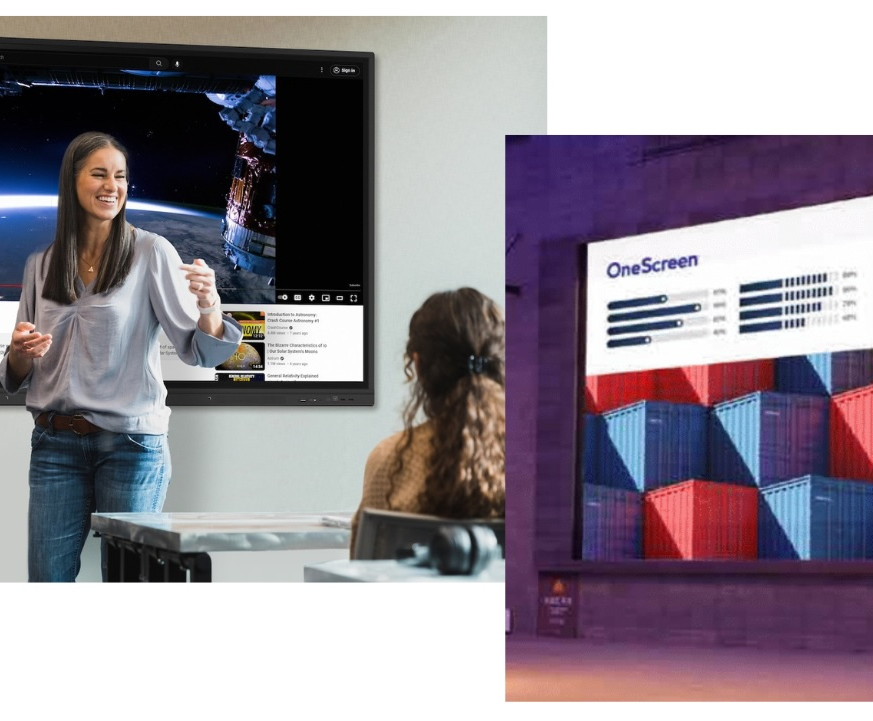
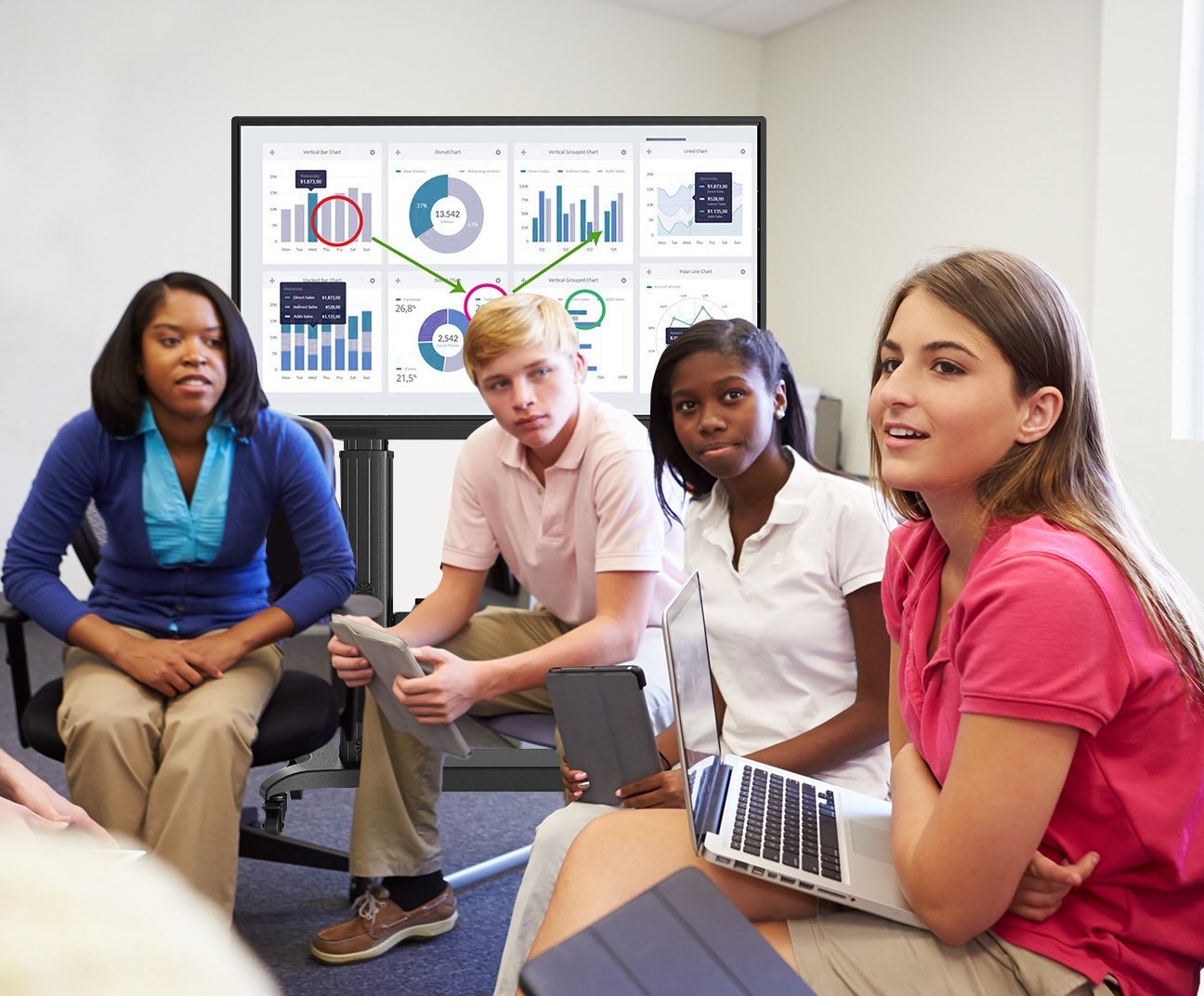
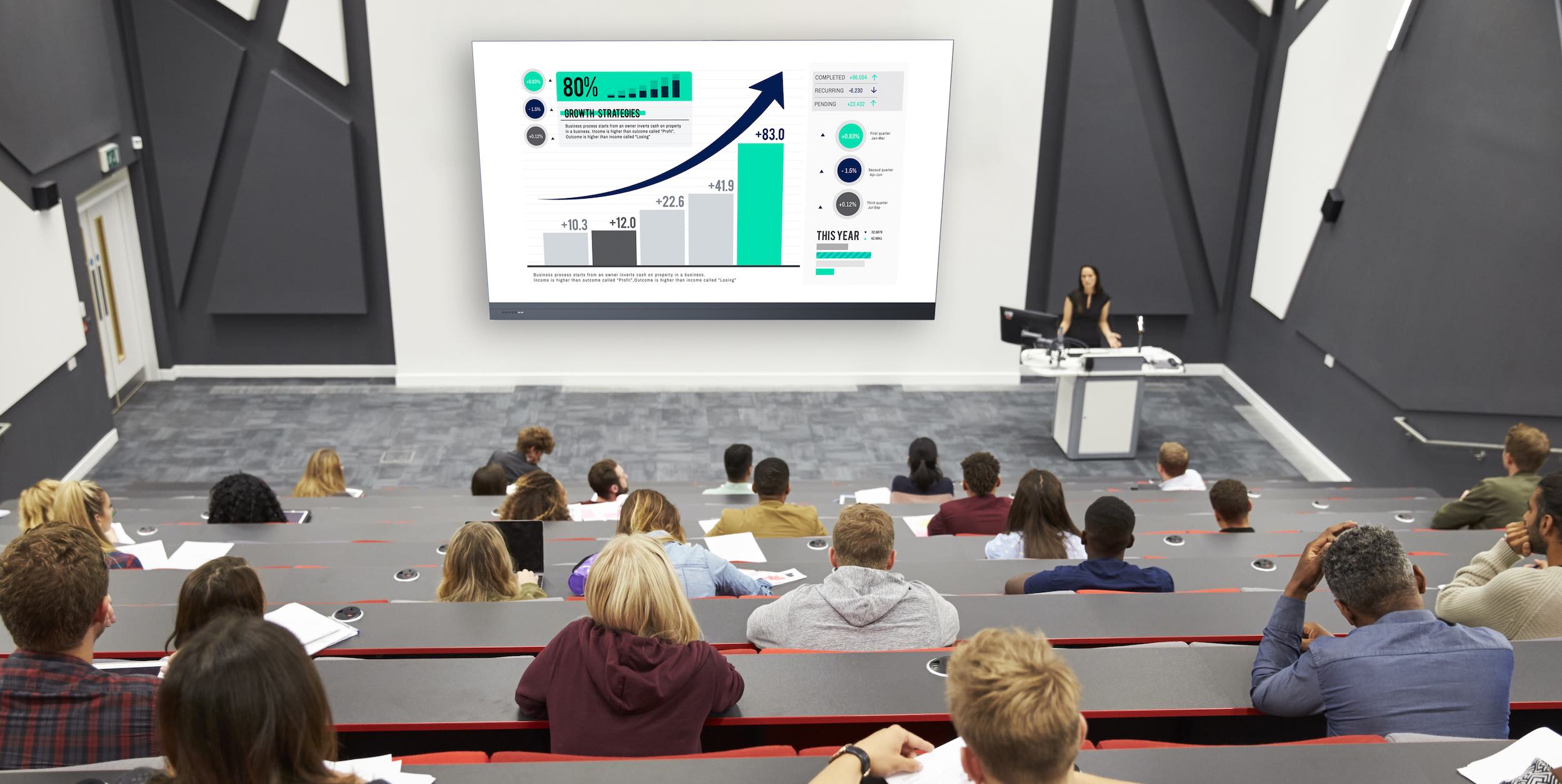

 Get a live demo now!
Get a live demo now!
